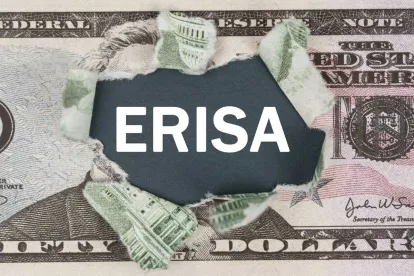A district court in New York recently refused to enforce an arbitration provision in an ERISA fiduciary breach lawsuit challenging the valuation of an Employee Stock Ownership Plan (“ESOP”). The ruling in Lloyd v. Argent, No. 22-cv-4129, 2022 U.S. Dist. LEXIS 219964 (S.D.N.Y. Dec. 6, 2022), exposes the continued uncertainty as to the enforceability of arbitration provisions when applied to ERISA fiduciary breach claims.
Plaintiffs in the case were former employees and participants in the defendants’ ESOP. They alleged that, in 2016, defendants caused the ESOP to purchase shares of the employer’s stock at an inflated price. In the years following the acquisition, the stock price plummeted for reasons plaintiffs state were foreseeable at the time of the acquisition. Defendants moved to dismiss on various grounds, and also to compel arbitration, based on arbitration provisions contained in the plan document. Among other things, the arbitration provisions disallowed “any remedy which has the purpose or effect of providing additional benefits or monetary relief” to anyone but the claimant. The arbitration provisions also included a non-severability clause, so the unenforceability of any requirement would render the provisions void in their entirety.
The court denied the motion to compel arbitration, holding that it impermissibly limited substantive rights conferred by ERISA, and was entirely unenforceable due to the non-severability clause. The court explained that under recent Supreme Court precedents, contractually agreed to arbitration provisions are not enforceable where they abrogate statutory rights, as arbitration is meant to change only the procedure by which rights are disputed. The court concluded that representative actions under ERISA are a “statutory right” that arbitration provisions cannot override. Further, the court concluded that the provisions here impermissibly precluded the plaintiff from seeking removal of a fiduciary, which is a form of equitable relief expressly provided for by ERISA.
Proskauer’s Perspective
This decision comes at a time of heightened interest in the ERISA community as to whether arbitration provisions can serve as a means to prevent suits to recover class-wide relief in ERISA cases. The Supreme Court is currently considering a certiorari petition that could resolve the question, but in the meantime litigants must navigate through diverse and irreconcilable rulings in different jurisdictions. While the court here cited support from the Second and Seventh Circuits, the decision is potentially at odds with a 2019 Ninth Circuit decision (discussed here) and a recent decision from a district court in the Eleventh Circuit (discussed here). Furthermore, unlike prior rulings that refused to enforce arbitration provisions in employment agreements based on the rationale that an individual participant could not preclude the recovery of relief on behalf of the plan, here the arbitration provisions in question were in the plan document itself. Accordingly, if this ruling were to be universally accepted, it would call into question the ability of plan sponsors to forestall class action relief through the use of arbitration provisions.



 />i
/>i

